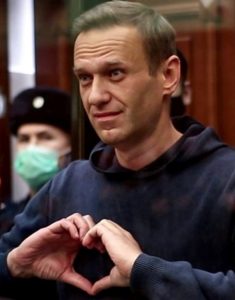Rev’d Peter Balabanski
Easter 4b – Good Shepherd Sunday – John 10 11-18
Kenneth Bailey’s book The Good Shepherd studies the image of God as our shepherd through the Old and New Testaments. When he gets to today’s Gospel, he reminds us that it’s a parable. He says Jesus told parables because they’re a form of teaching you can give people in a context of powerlessness and oppression. p.233 Teaching in parables is a way of protecting the people who hear the teaching, because the authorities can’t prove that what you’re saying is subversive; that you are in solidarity with the people they’re persecuting.
We can tell Jesus’ teaching method here was necessary from the context of his Good Shepherd parable. In the previous chapter, we read that Jesus had given the gift of sight to a man who’d been born blind. But because the religious authorities were out to get Jesus, and the man was completely open about who had given him his sight, the religious leaders drove him out of synagogue-fellowship; a shocking punishment.
By placing today’s parable straight after this story, John the Evangelist is giving us a pretty strong hint who the hired hands and the wolf might be. Jesus’ parable was a picture of the bad shepherds; the type of self-serving religious leaders that the prophets before him had exposed so eloquently. Jrm 23.2, Ezek 34.1-10, Zech 10.2-3 John’s gospel is effectively denouncing as ‘hired hands’ the Pharisees and other members of Jerusalem’s religious establishment who challenge Jesus’ healing work. And quite possibly the Roman governor is the wolf. John is the evangelist who tells us that Rome alone had the legal power to pass a death sentence. 18.31
And Jesus is talking about himself in this parable too. 14 I am the good shepherd. I know my own and my own know me, 15 just as the Father knows me and I know the Father. And I lay down my life for the sheep. Kenneth Bailey says this is the closest John’s Gospel gets to Jesus telling his disciples of his coming passion and death. And it says a lot more than that too. 14 I am the good shepherd. I know my own and my own know me, 15 just as the Father knows me and I know the Father. And I lay down my life for the sheep. Jesus is saying that we have a relationship with him as intimate as the relationship he has with the Father. We see this in the commitment of the good shepherd to the sheep. And this relationship is possible because of the cross. p.231 I am the good shepherd, says Jesus. The good shepherd lays down his life for the sheep.
But what’s the point? What’s the use of a dead shepherd? Aren’t the sheep more vulnerable than ever if the shepherd dies?
It’s definitely not pointless. We experience suffering as a part of being mortal – it’s a part of who we are. We don’t like suffering, but without it, we aren’t real people. Suffering is the great leveler – it comes without fear or favour. Whether someone hits me on the head or I forget to drink enough on a hot summer’s day, the end result is the same; I go to bed with a headache, like anyone would.
If God sent Jesus as a bodyguard who took away my attacker’s club, it may save me from a headache. But that doesn’t change anything really. The world stays the same and God is still remote. The bodyguard, Jesus, is immune, and while I’m spared, many other people aren’t. A god of that Jesus would be choosey. That god would have favourites. That god isn’t the real one.
So, no big Jesus the bouncer. Instead, God came to us in Jesus as someone who was just as vulnerable to a beating as we are; someone who probably also got dehydration headaches on those long sessions when he was out caring for the crowds. The real Jesus is at one with us in our vulnerability; and I’m so grateful that he is. Because then, even the tiniest child has a God who knows what it feels like to be them in their hard times; helpless and blameless when someone or something hurts them. As the shepherd who’s willing to lay down his life for us, Jesus is saying he has compassion for us. He’s in our situation, feeling what we’re feeling. He won’t let us face our pain alone.
Our pain is not a weakness; it’s an integral part of who we mortals are. When Jesus says he’s the good shepherd who lays down his life for the sheep, he’s telling us that in our pain, in our fear, in our danger, in our brokenness and our indignity, he is with us. He is an integral part of who we are too.
So he’s not asking us to break bits off ourselves and throw them away. He’s taking us as we are, and asking to relate to us as we are to show us that we can love like he loves. It’s in receiving that love, from Jesus, from ourselves, and from each other that we move towards believing that we are whole and wholly loveable. That we can change and grow because we are together with the one who knows and loves us most deeply – the one who can transform our wounds and fears into wellsprings of compassion and love just like his.
Jesus can help us discover that it’s in our vulnerability to pain and mortality that we discover compassion, and in our compassion that we discover ourselves as made in the image of the lovely God who is the real one – that we can be agents of God’s healing too. Praise be to our God who sent us Jesus the Good Shepherd! Amen

